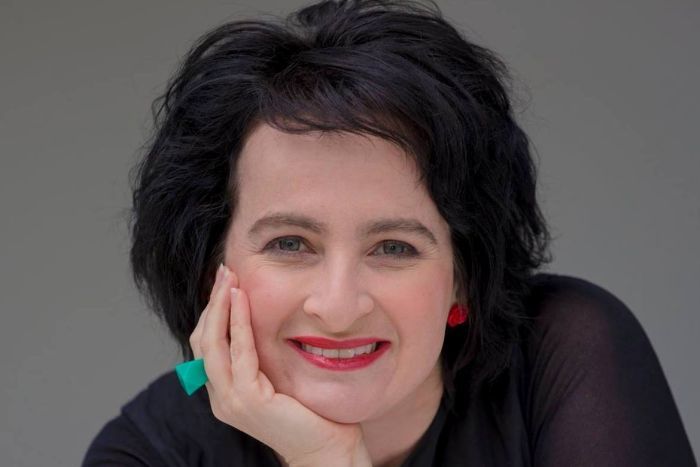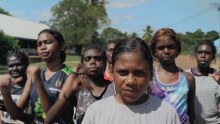Internet trolls are not who I thought — they're even scarier
Posted
 Photo:
Ginger Gorman interviewed trolls for her book and discovered most of her preconceptions were wrong. (ABC News: Adam Kennedy)
Photo:
Ginger Gorman interviewed trolls for her book and discovered most of her preconceptions were wrong. (ABC News: Adam Kennedy)
In 2017, I wrote a major investigation into predator trolling that went viral.
Buffeted by its success, I took up the offer to write a book. It wasn't an easy decision, given how much trolls had threatened my family.
I thought I knew what I was walking into. But it turns out I had no idea.
Gradually, all the myths about trolls fell like a house of cards.
Myth 1: Trolls are alone in their mothers' basements
With one exception, the trolls I investigated did not troll alone.
Many of them operated in well-organised international syndicates. Trolling has its own culture, language, "lore" and history — most of which is incredibly hard to grasp from the outside.
Some of the syndicates even have presidents and vice presidents, much like the way bikie gangs operate.
They all know each other and occasionally swap syndicates and allegiances. Sometimes the syndicates work together to achieve a certain aim — like targeting a specific victim.
As the predator troll "Mark" explained to me when I interviewed him for Fairfax, he profiles victims and then incites members of his gang to pile on.
He might target rape victims, people who are LGBTI or people who are mentally ill, trying to incite vulnerable people to harm themselves.
He and other trolls also target the Facebook memorial pages of people who have died by suicide. This is known as "RIP trolling".
For Mark and others like him, it's business. They don't care who or what you are — they are just trying to find your weakest point and get an emotional reaction from you. As a rule, they attack anyone who they view as outside the paradigm of being a white male.
Although I did come across one transgender woman who was a predator troll, they are mostly a cohort of angry, white men aged 18-35 and they police discourse on the internet with themselves at the centre.
I asked Mark for an analogy to the trolling syndicate he belongs to. "Yakuza", he replied, referring to the Japanese organised crime syndicates.
"More like a mafia set-up than a bikie gang."
Some gang members are trusted and respected and are given administrate roles doing things like wikis about the gang's exploits or managing the syndicate's Internet Chat Relay (IRC) channel. Others aren't respected — even trolling syndicates have socially irritating individuals — and they are cast out.
Meepsheep, president of a notorious trolling syndicate, said presidents are elected "maybe once every two years" and this happens live on air via the ICR call-in podcast, L0de Radio Hour (LRH).
Myth 2: Trolls are uneducated losers
One of the things we take comfort in is the idea that our attackers are ignorant, uneducated and alone — a "nobody".
But like many of the harassers I've investigated, the man who appeared to trigger predator trolling against my family and I was not ignorant or uneducated.
He's married with six children. He previously worked for the Washington Times as assistant national editor.
At the time he wrote scathing attacks against me, his blog and Twitter had thousands of followers.
Far from quelling hate and fear of marginalised people, education can make things worse. The person who helped me understand this was Dr Heidi Beirich, head of the Hatewatch blog, which monitors the American "radical right".
"We'd like to think somebody who harbours racist views or other forms of ugly bigotry is an ogre type," she says, "or a Klansman in his hood with teeth falling out.
"But that is not the case for most of the white nationalists that we deal with.
"A lot are probably better read than the average American.
"You can be extremely educated and believe really, really horrible things."
 Photo:
Trolling is a complex behaviour with various motivations, from sadistic power-plays to political expression. (Reuters/Samantha Sais)
Photo:
Trolling is a complex behaviour with various motivations, from sadistic power-plays to political expression. (Reuters/Samantha Sais)
Myth 3: Trolling is mindless
People often ask me who the trolls are. Trolling is a complex behaviour and each of the trolls I have met over many years has been incredibly different from the next.
For example, when I met "Mark", I was terrified — not only because he causes real life harm to people, but because he has no empathy. My investigations have shown law enforcement and social media companies don't usually offer adequate assistance to cyberhate victims — if Mark and his gang came after me, I was alone.
In person, there was nothing to suggest he was a highly-organised and committed predator troll. He was a pale and pimply young man with a bad dress sense. On the street, he'd never catch your eye.
In contrast, when I met "Craig", the 29-year-old was hip and good-looking in a suit, with blue eyes and well-groomed facial stubble. He was surprisingly easy to talk to, explaining that he was "far left". Although Craig did troll people on the right, he often attacked people on the left he viewed as "not far enough left".
While you can make some generalisations about serious trolls, they aren't all the same. They can be left or right wing or in-between. They can be psychopathic. But sometimes trolls I met were helpful, interesting and empathetic.
They taught me trolling isn't always about wrecking people's lives. Take "Meepsheep".
During the 2016 US presidential campaign, Meepsheep vandalised a number of Wikipedia pages, including Hillary and Bill Clinton's, placing "a huge tiled background of some chick's naked butt" over the top.
Alongside offensive words about the Clintons, Meepsheep wrote: "Save the America you know and love by voting for Donald Trump".
 Infographic:
In the 2016 presidential race, Meepsheep placed this on top of Hillary Clinton's Wikipedia page.
Infographic:
In the 2016 presidential race, Meepsheep placed this on top of Hillary Clinton's Wikipedia page.
This was widely reported in the press — something trolls aim for and describe as "media f**kery". Their trust in journalism is low, and they are often trying to point this out by making up news, turning media reporting into a pantomime or causing confusion.
"That is kind of where some of the value of trolling comes from, that it can point out some of these flaws," says Meepsheep.
"It is a way of intellectually fighting, almost debating with someone. And then there's just some kind of satisfaction in making someone look like an obvious fool when they're already doing it to themselves."
Myth 4: Trolls can't hurt you in real life
One of the most harrowing case studies in my book is that of journalist and activist Sherele Moody, who is subject to relentless trolling as founder of the anti-violence Red Heart Campaign.
Sherele told me her Great Dane Reuben was poisoned with "some sort of acid. The chemical melted the flesh on his mouth, tongue and throat. I was extremely lucky not to lose him."
Sadly, this wasn't the case for her beloved horse, Frank. Sherele received threats saying "the horse had been sent to the glue factory". A few days later Sherele says Frank was found dead in thick scrub.
One of the most pernicious myths about predator trolling is that it's virtual — that it stays online in a kind of fairyland. My research links predator trolling to all kinds of real-life horrors: shootings, suicide and suicide attempts, a woman killed and many others injured at a Unite the Right rally in Charlottesville, indecent communication with a child, stalking, domestic violence, PTSD, mental illness and more.
The nationally representative polling I commissioned from the Australia Institute found the cost of cyberhate and online harassment to the Australian economy is $3.7 billion. That figure only counts lost income and medical expenses — so the real cost is far greater.
Myth 5: Only loud-mouthed feminists are trolled
The survey found 44 per cent of women and 34 per cent of men have experienced one or more forms of online harassment.
This is equivalent to 8.8 million Australians experiencing harassment online.
Men experience more abusive language for their religion, ethnicity and political beliefs than women. But women report more online abuse in all other categories.
Women were more likely to report receiving threats of sexual assault, violence or death; incitement of others to stalk or threaten them in real life; unwanted sexual messages and publication of their personal details.
 Photo:
Ginger Gorman and her family have been trolled. (Facebook: Ginger Gorman (By: Richard Tuffin))
Photo:
Ginger Gorman and her family have been trolled. (Facebook: Ginger Gorman (By: Richard Tuffin))
What do we do about it?
Cyberhate is a complex issue that needs a multifaceted community response. As a bare minimum, law enforcement and social media companies need to do a lot more to keep us safe.
We also need to have some hard conversations as a community. Misogyny, racism, homophobia and hatred didn't start online.
Most striking in my research is that trolls weren't born that way. They are products of the society we live in.
Often these are kids from violent and neglectful homes. They are left alone on the internet from a young age, imbibing torrents of hate.
It's no wonder they are spat out as angry and isolated young men who want to harm others. This is a parenting story. And we can fix it.
Ginger Gorman is a journalist and cyberhate expert. Her book, Troll Hunting, is now available.
Topics: internet-culture, information-and-communication, women, australia









